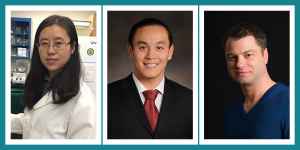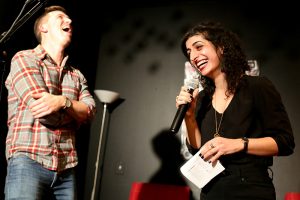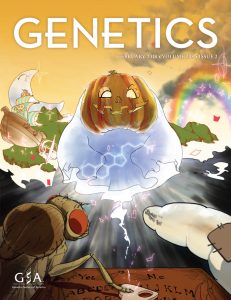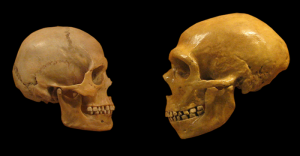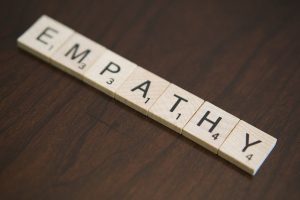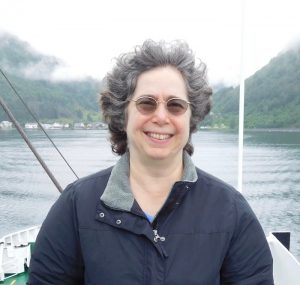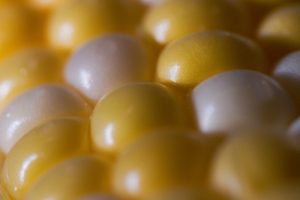Enter your address to receive notifications about new posts to your email.
Featured
-
Featured
The GSA Policy Fellowship Database: a searchable resource for scientists
Policy should be informed by scientific data. It’s critical that scientists are directly involved in ensuring policy decisions both reflect scientific knowledge and support innovation. For scientists interested in shaping public policy, there are many career options, including working for elected officials, government agencies, and nonprofits who advise on policy. However, PhD and postdoc training…
-
Featured
Three GENETICS articles from 2017 recognized with Editors’ Choice Awards
Congratulations to the winners of the Editors’ Choice Awards for outstanding articles published in GENETICS in 2017! The journal’s Editorial Board considered a diverse range of articles, finding many papers worthy of recognition. After much deliberation, they settled on one exceptional article for each of the three award categories: molecular genetics, quantitative genetics, and population and evolutionary genetics.…
-
Featured
Zooming in: population genetics on a mitochondrial level
The mitochondria powering your cells are not all genetically identical. Genetic variation across the mitochondria of a single individual is common. This diversity is called mitochondrial heteroplasmy, and it plays an important role in the severity of mitochondrial disease. Problematically, the complexities of mitochondrial inheritance makes it extremely difficult to predict how this diversity is…
-
Featured
Get outbred: Genetic diversity in laboratory gerbils
Biologists rely on animal models to answer important questions that can’t be addressed with cells in a dish. Often, these animals are deliberately inbred; a less diverse population of animals means that data obtained from experiments with these animals will be less noisy and easier to interpret, so fewer animals are needed for meaningful results.…
-
Featured
Maryam Zaringhalam on why extracurriculars aren’t “extra”
AAAS Science, Technology and Policy fellow Maryam Zaringhalam started community engagement activities during her PhD that helped her transition into a career in science policy and communication. She is currently a leadership member of 500 Women Scientists and a DC producer for The Story Collider. In the Decoding Life series, we talk to geneticists with diverse career…
-
Featured
Behind the cover: Drosophila Halloween genes
Fruit fly mutants can sometimes be grisly. Ecdysteroid hormones control aspects of fly development, including molting and metamorphosis; because aberrations in these genes lead to embryos with a ghastly appearance, they have been collectively dubbed “Halloween genes.” In a study published in GENETICS, Uryu et al. investigated how the expression of these genes is regulated.…
-
Featured
Tales told by ancient human DNA
Archaeologists have long known how to extract millennia-old stories from a single tooth buried in an ancient ruin—and now geneticists have the tools to join them. Advances made in the last several years have enabled researchers to sequence tiny amounts of DNA preserved in very old specimens, such as the material inside a tooth from…
-
Featured
Hyper-conserved sperm proteins can still evolve rapidly
The fastest-evolving genes in eukaryotes commonly encode reproductive proteins—and the rate at which genes for male reproductive proteins change, in particular, often vastly outstrips the rate of change across the genome as a whole. A recent paper in G3: Genes|Genomes|Genetics describes an unusual exception: the amino acid sequences of the most abundant sperm proteins in…
-
Featured
Enriching the science training experience requires empathy and compassion
Guest post by Faten Taki. Leaving work late the other night, I crossed paths with a tearful postdoc colleague. The encounter left a scar in me. I was tired after what was for me a long day. But for her, it was after yet another mandatory four-hour meeting that ended at 10 pm. As she…
-
Featured
Mariana Wolfner recognized with 2018 Genetics Society of America Medal
The Genetics Society of America (GSA) is pleased to announce that Professor Mariana Wolfner of the Department of Molecular Biology and Genetics at Cornell University is the recipient of the 2018 Genetics Society of America Medal for her work on reproduction. Wolfner and her colleagues have identified proteins in the seminal fluid of fruit flies…
-
Featured
To fight malnutrition, geneticists are developing more nutritious corn
Corn feeds millions of people, and its low cost makes it particularly important in developing countries. However, it can’t be relied on as the sole source of protein for either humans or livestock because—like most cereals—corn is low in certain essential amino acids. In the 1960s, a type of corn was discovered with boosted levels of…


